On The Rehearsal
How Nathan Fielder's series speaks to neurodivergent forms of social preparation
A couple of weeks ago I flew out to Montréal from London Heathrow. I last boarded a plane in 2021, to Belfast to record a heat of Mastermind (my specialist subject was Sylvia Plath). The world was adjusting to post-COVID freedom, and its many contradictions—there was no social distancing on the plane, but there was in the television studio. It might have been the anxiety associated with my experience of sitting in the famous black chair opposite Clive Myrie, but I was put off air travel for years. And as the time between trips grew longer, the more alien the experience of flying felt to me.
"the freakness of my accident made me realise that one can never prepare for everything"
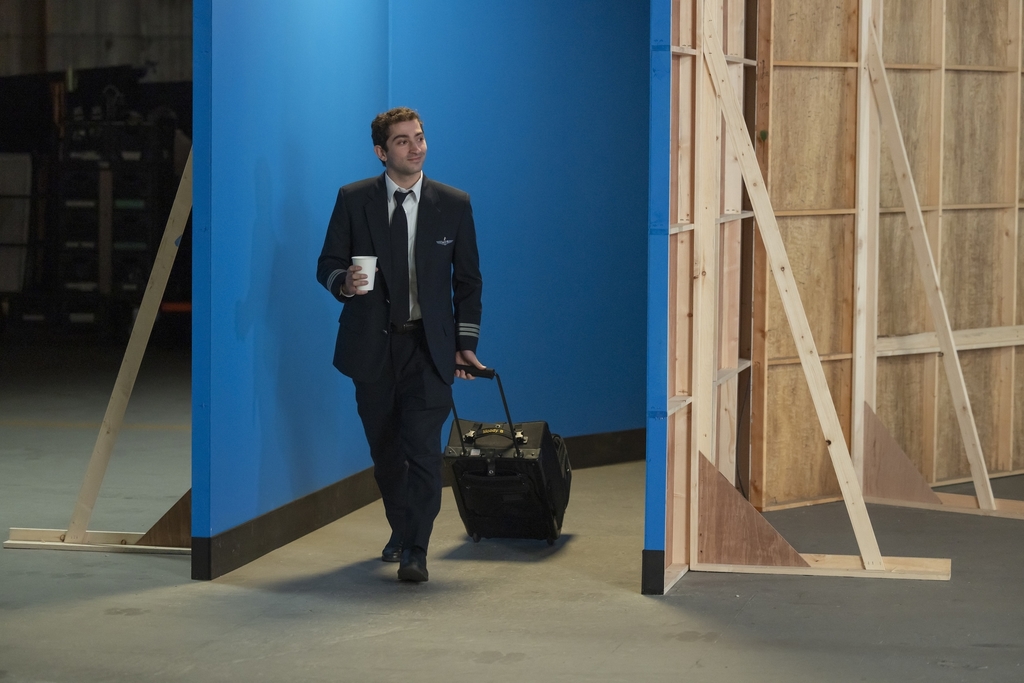
The Rehearsal
Before my recent trip, I had a phone call with a kind lady at British Airways. She talked me through my journey from boarding the Heathrow Express at Paddington, through check-in, security, and to the gate. She advised me to wear my sunflower lanyard, signalling my hidden disabilities (which include Complex PTSD and Autism Spectrum Condition), so that staff would know how to support me. She told me exactly where to go to meet someone to accompany me, where I would have to wait, and allowed me to choose my seat on the plane in advance. Through our conversation, I rehearsed in my mind the journey from my flat to Montréal-Trudeau.
My imagination is extremely vivid. One of the ways in which I am neurodivergent is my synaesthesia, meaning that I interpret one sensory input as another, such as seeing imagery and colour when I listen to music. During conversations I have noticed that people are often perturbed by my wandering gaze as I become so immersed in my visualisations that my eyes glaze over. My anxiety and depression manifest in catastrophisation, keeping me awake at night in which I play over worst-case scenarios like disaster movies in my mind. Sometimes I lose control of these alternate realities, resulting in intense flashbacks to the traumas I have experienced since childhood, which I have learnt to control through Cognitive Behavioural Therapy (CBT) and Eye Movement Desensitisation and Reprocessing (EMDR).
"a friend recommended I watch The Rehearsal, a series they said had direct relatability to neurodivergent ways of social preparation"
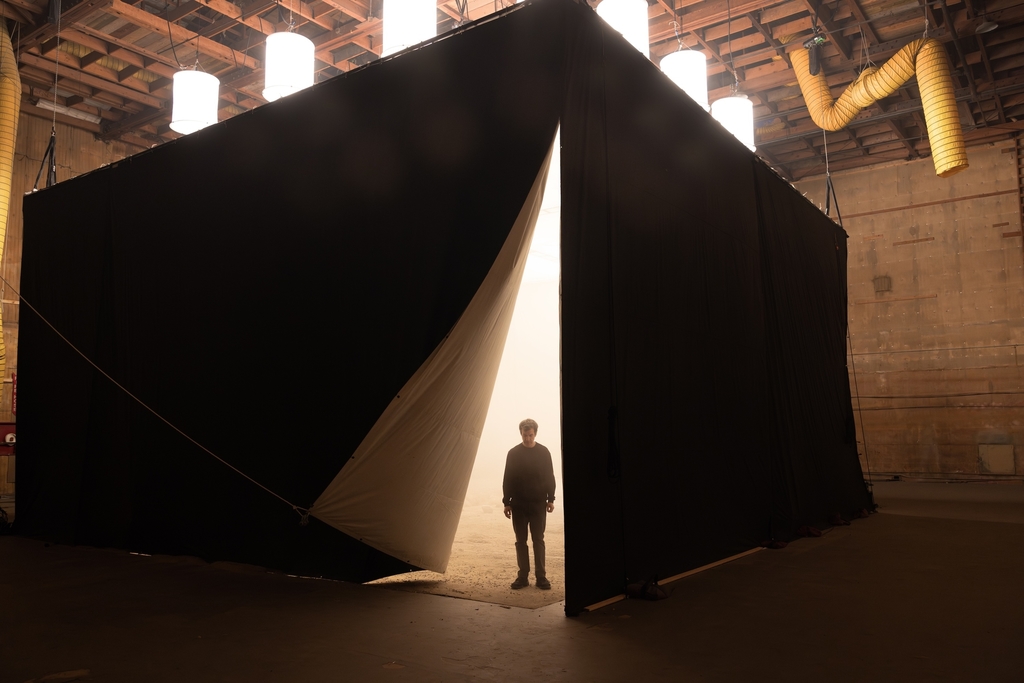
The Rehearsal
Last year, before I was about to embark on my first foreign holiday in years to Bologna, I fell on a spiked gate and was impaled in two places best left to the reader’s imagination. I needed a colostomy, leaving me to contend with a new trauma and the constant anxiety of living with a stoma. The idea of going through airport security with a bag attached to my stomach was unthinkable. In my conversations with therapists I have found myself explaining my catastrophising as something positive or even helpful because it meant that I was prepared for the worst and had a concept of how I might react in frightening situations. However, the freakness of my accident made me realise that one can never prepare for everything, and that the mental exhaustion of constant mental rehearsing is ultimately futile.
Yet with my colostomy reversed and my confidence slowly renewed, the preparations I underwent for my trip to Canada proved essential to the calmness I experienced on my first flight in four years. It was after my return to Blighty that a friend recommended I watch The Rehearsal, a series they said had direct relatability to neurodivergent ways of social preparation. Created by and starring comedian Nathan Fielder, the show aims to aid people preparing for difficult life moments and conversations by physically staging the event with great detail.
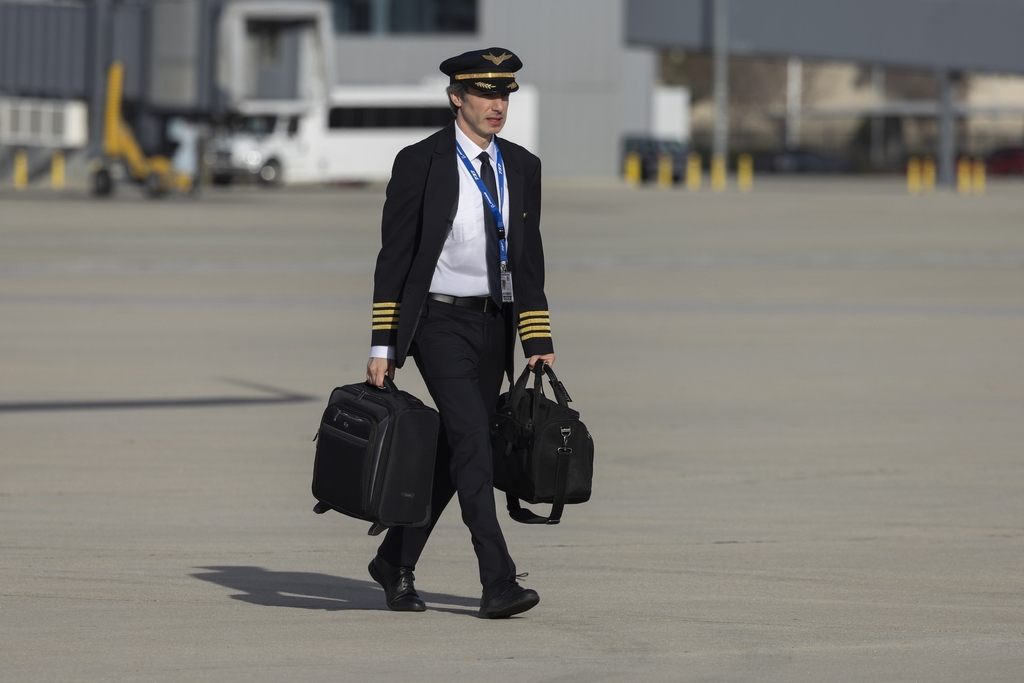
The Rehearsal
In the first episode, Fielder assists a man named Kor who loves quizzing, one of my own favourite social activities. As a student I was a president of the Cambridge University Quiz Society, competing in tournaments across the country, writing and hosting a weekly pub quiz, and competing on University Challenge. The anxiety of going to university was made easier by being able to discuss trivia with my peers, negating the need for small talk through academic questions and using it as a tool for building my social confidence. My University Challenge team rehearsed every possible subject that we believed could come up, rewatching countless episodes of the show and developing our rapport and ability to confer. But as with Mastermind, no amount of quizzing in college rooms could prepare me for the experience of being on a television set, and as I sat under the watch of studio lights and cameras, I felt paralysed.
"as I sat under the watch of studio lights and cameras, I felt paralysed"
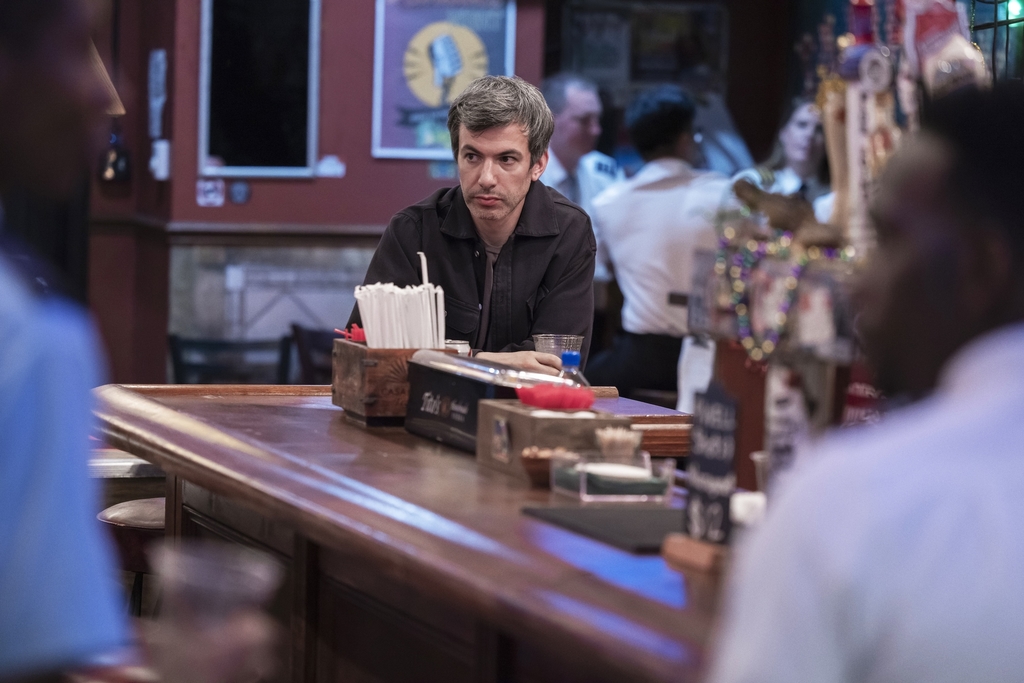
The Rehearsal
I had this in mind as I watched the first episode of The Rehearsal. Kor wants to tell his trivia friends that he lied about his educational background, and Fielder prepares him for how to break this news by testing out as many possible outcomes as he can conceive. He rebuilds the bar in which the conversation will take place in a warehouse with startling accuracy; however, I could not help but think of the additional pressures of being filmed, of knowing that other people, and a huge international audience, would see and hear the conversation take place. Fielder does not stage real, everyday situations, but ones which take place under a wholly unnatural gaze which necessitates an enormous amount of self-curation, conscious or unconscious.
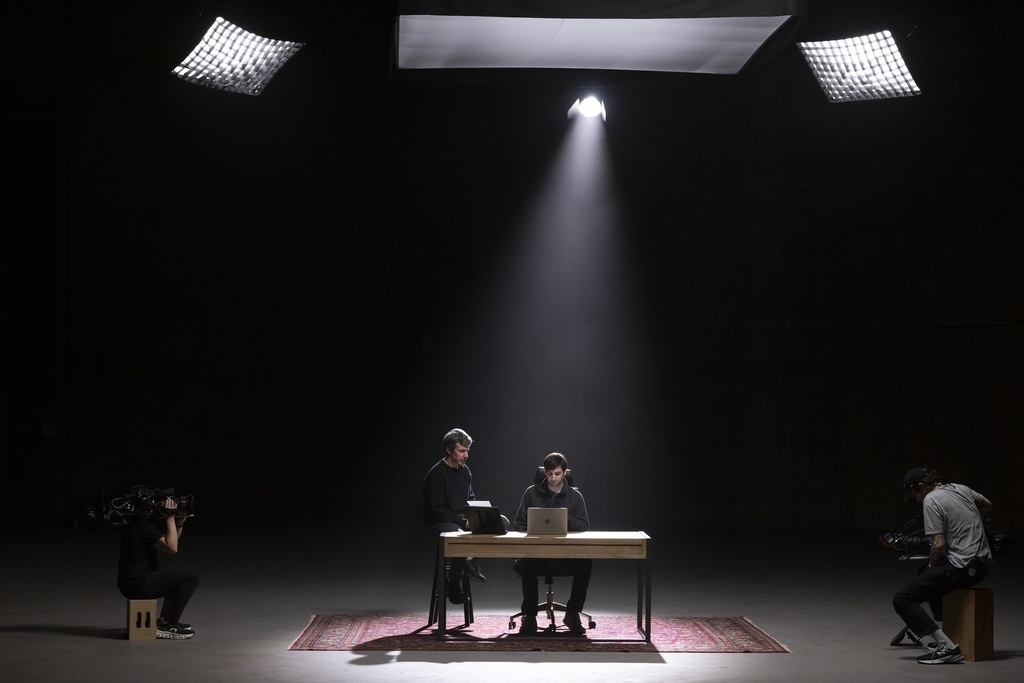
The Rehearsal
That self-curation is often described in conversations about neurodivergence as ‘masking’ or ‘camouflaging’, the façade we create to give the impression we believe others want from us. How much effort is needed to create this mask is perhaps what distinguishes so-called ‘neurotypicals’ from neurodivergent individuals. It is interesting that so few of the people involved in The Rehearsal, including Fielder, describe themselves as neurodivergent, since they all seem to come to rely on complex conversational scripts aimed at preparing one from never needing to socially improvise. This is not in itself a problem, but rather demonstrates the false hierarchy or distance many neurotypicals seem to perceive themselves as having from neurodivergent people.
"The genius of the series is to reveal the farce of rehearsal, of the absurdity of life, and the infinite meta possibilities of rehearsal"
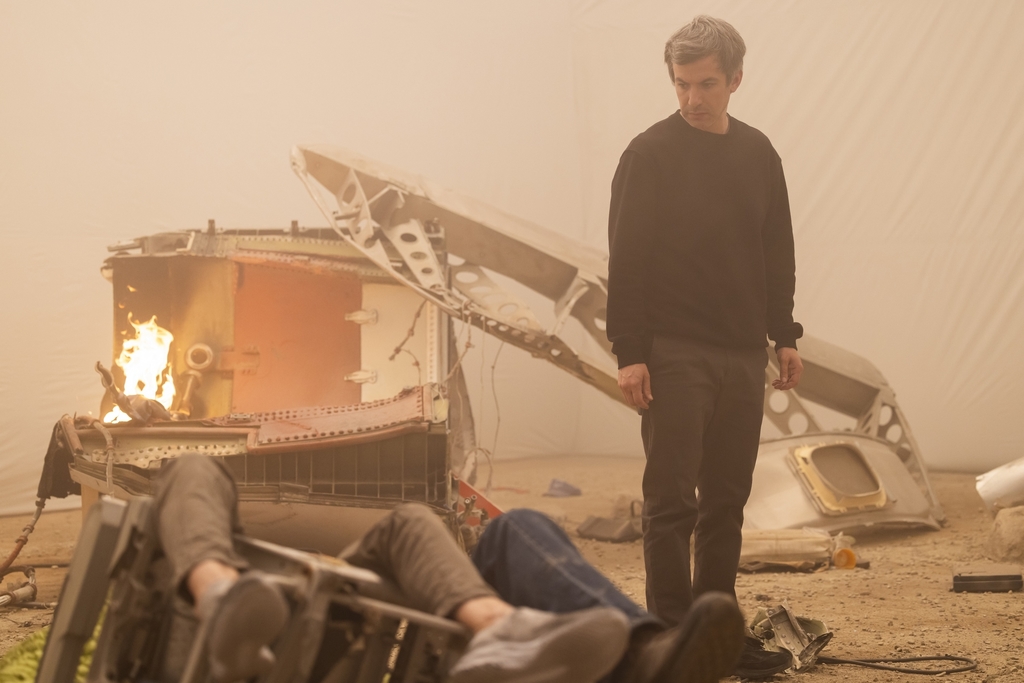
The Rehearsal
Bars and restaurants can be overwhelming for people like myself who are hypersensitive — for me this manifests as misophonia, whereby irritating sounds rouse anger. The loudness which neurotypicals seem to be comfortable with has led me to curate ‘relaxed’ screenings in cinemas, in which the volume is lowered, the lights are left slightly on, people are free to move around, and we have a designated quiet area outside. Before one of these screenings, we make available to the audience a ‘visual story’ or walkthrough, describing everything from the route into the venue to the texture of the seats. Whenever I book a seat for the theatre I always make sure to find photographs of the view from my seat so I can feel prepared for how it will look when I sit down as this was something I found distressing as a child.
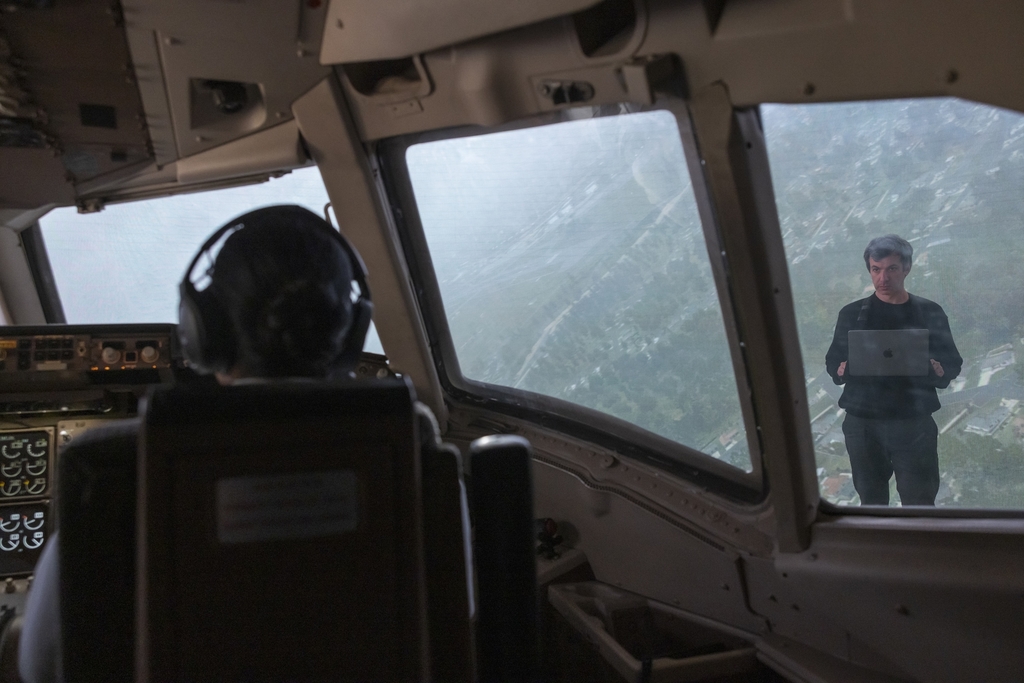
The Rehearsal
I thought about the bar Fielder created in the first episode of The Rehearsal in relation to these screenings. Fielder reveals in a subsequent episode that he could not throw away his fake bar and kept it for himself, making it a personal quiet space. It would be wonderful to have a bar which I could curate—turn down the volume, play music I like, remove heterosexual men. Anything I wanted to create a feeling of safety in which I could relax. Of course, that would not be a good rehearsal space for the real world. But as my freak accident taught me, no amount of virtual preparation can ever brace us for the actual. I find that over-rehearsal means that any deviation from what I have mentally prepared for can be more overwhelming than if I had not prepared myself at all.
This concern for overthinking stayed with me throughout the first series of The Rehearsal. From the second episode, Fielder assists a Christian woman called Angela who does not believe in premarital sex to experience what raising a child with a husband would be like by using a sequence of baby and child actors up to the age of 18. The process constantly goes awry, with one of the child actors even believing that Fielder is his father after his involvement in the project has ended. The genius of the series is to reveal the farce of rehearsal, of the absurdity of life, and the infinite meta possibilities of rehearsal wherein Fielder at one point stands in for an actor listening to an actor playing Fielder to understand why his teaching methods are not engaging his actors.
"He takes a cognitive ability test to see if he can read the emotions of pictures of people’s eyes, only to find the whole thing as absurd and ambiguous as I did when I was a child"
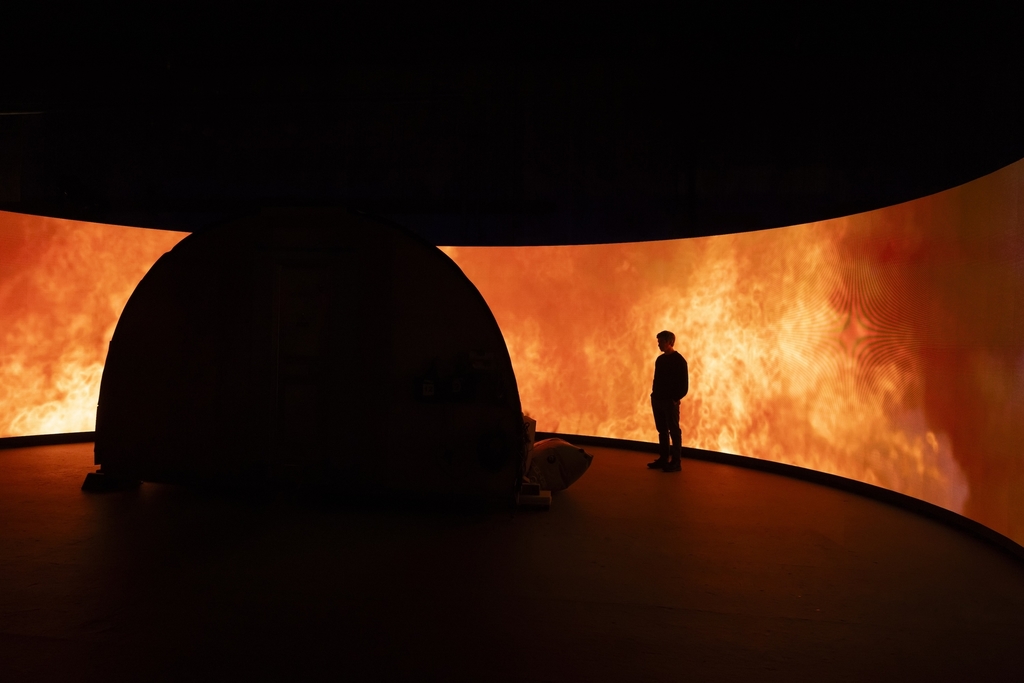
The Rehearsal
The knottiness of the project in relation to autism is discussed in an article by Sam Rosenberg, who relates the absurd stagings to his own experience in speech and language therapy. My diagnosis of autism was complicated throughout my childhood by my constant questioning of the questions. When shown a picture of a facial expression, I would challenge why it could possibly be of use or interest to me. I was repeatedly told that I was a difficult child by my teachers, who found my relentless interrogations as to the purpose of what we were being taught wearing. I had no sense of hierarchy, and could not understand why an adult was supposedly superior by virtue of being older than me. I eventually received my diagnosis when I gave up my pedantry and played by the script of autism testing. Naturally I passed with flying colours.
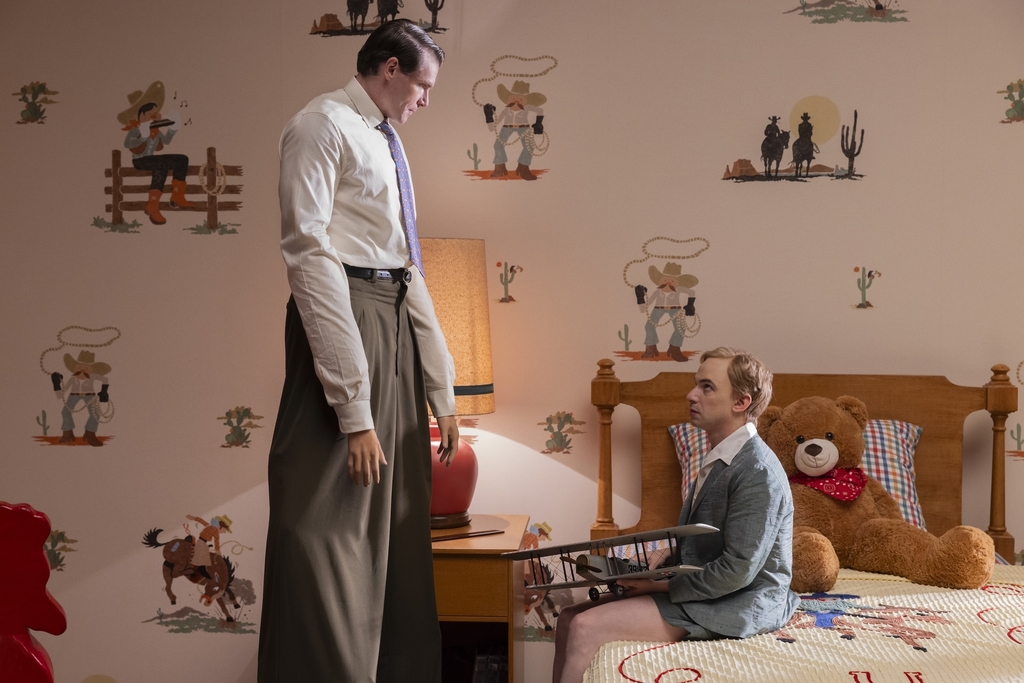
The Rehearsal
The running thread of the second season of The Rehearsal sees Fielder interrogating why breakdowns in communication and power relationships between pilots can lead to plane crashes. Dissonances in communication lead Fielder to considering the resonance of the show to autistic viewers. The fifth episode directly engages with this, much to its discredit. Fielder discusses Rosenberg’s article on camera, describing it as 'an odd perspective, since my show had nothing to do with autism'. He takes a cognitive ability test to see if he can read the emotions of pictures of people’s eyes, only to find the whole thing as absurd and ambiguous as I did when I was a child. Yet rather than engaging with the possibility that he might be autistic (the lady doth protest too much, methinks), Fielder turns his attention to autistic children as understood by some extremely dodgy doctors and organisations, tackled by Rosenberg in a follow-up piece. Fielder exploits his apparent status as an ambassador for autistic people to secure a meeting with a congressman to discuss his agenda regarding aviation safety. It is deeply uncomfortable as a neurodivergent viewer.
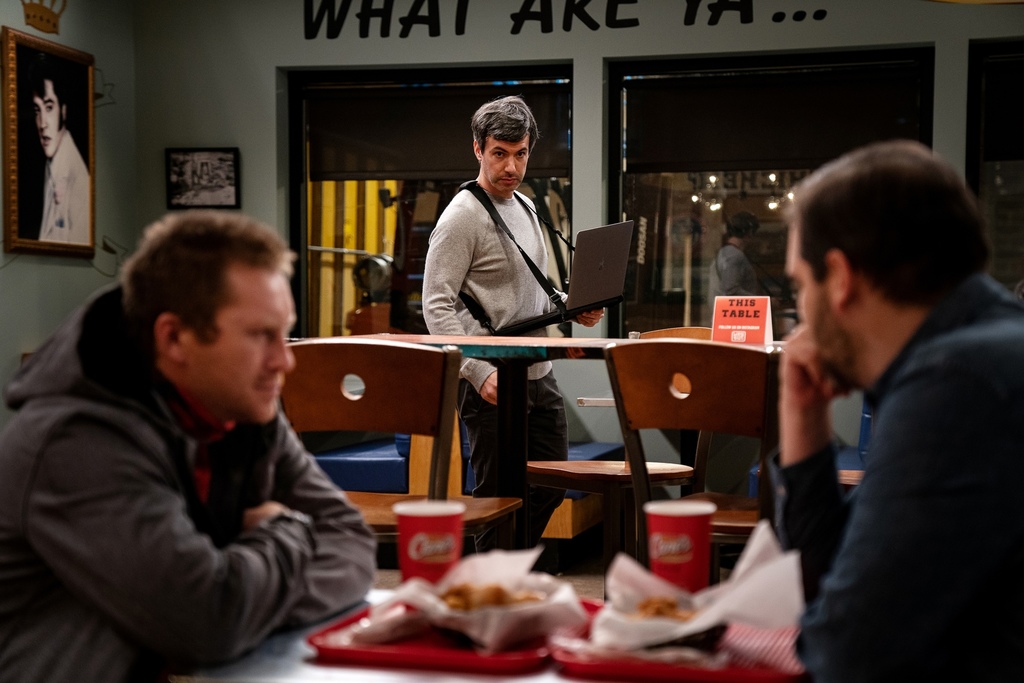
The Rehearsal
As Fielder discovers the value of The Rehearsal to a neurodivergent audience, his already paternalistic practice takes a demeaning turn towards autistic people. While his intentions seem honourable, Fielder invites a group of autistic children to make use of the airport model which he has built as part of his plane-crash project. For a show which typically scrupulously follows every possible eventuality to its conclusion, there was no attempt to connect with the children, the whole sequence seemed protracted to a mere photo opp. It felt like an oversight.

The Rehearsal
Watching the children exploring the fake airport brought to mind my recent travel experience, and the verbal walkthrough of Heathrow that I was taken on by the lady from British Airways prior to my trip to Canada. I wondered if I would have found a physical recreation more useful than the advice I received, or if this would have only added to my distress. My conclusion is that there is some comfort brought by margins of error left by the mind’s eye, from the fluidity and vagueness of verbal description, rather than the apparent certainty of something that exists in the real world. As in theatre, one has to believe that it will be all right on the night.